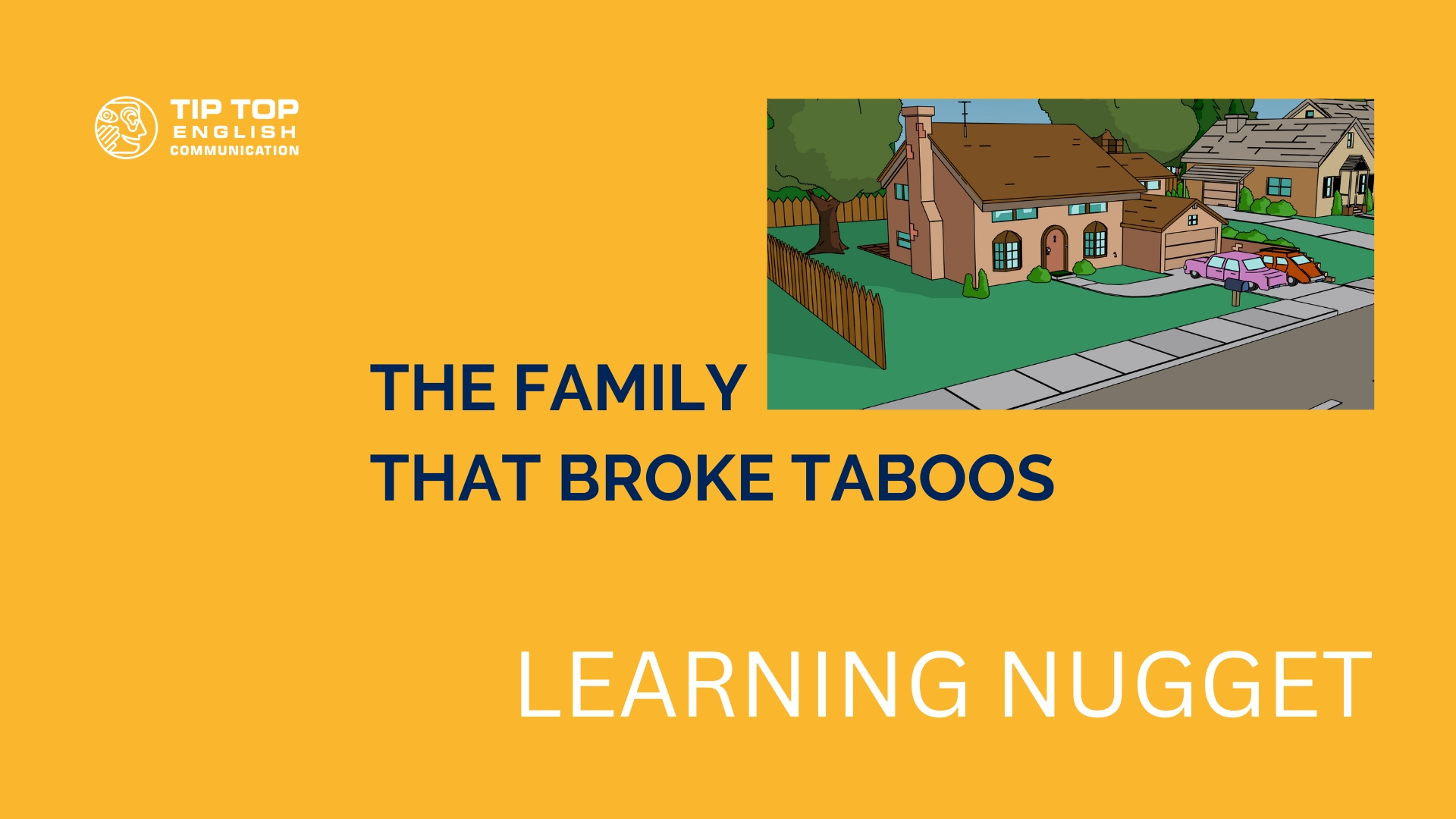The family that broke taboos
„The Simpsons“ first aired as a stand-alone show in 1989 and is the longest-running animated sitcom of all time. There are more than 760 episodes, with more to come in 2024 and 2025. The yellow family of five are part of a multi-billion dollar franchise that has inspired generations of humorists and animated series.
In this Learning Nugget, learn how „The Simpsons“ got started and some of the strangest and most interesting differences in different countries‘ adaptations of it.
A winning idea from a show that failed
In 1987, producers working on a U.S. sketch comedy program called The Tracey Ullman Show asked an up-and-coming comic strip writer named Matt Groening if he’d create short animations for the program.
They wanted Groening to adapt a popular strip he was publishing at the time called „Life in Hell.“ But when Groening realized he’d have to give up the intellectual property rights to his characters and stories, he opted to create new characters instead.
He came up with a family that was the opposite of most others on TV at that time. The brother and sister, Bart and Lisa, fought constantly and ignored or teased their baby sister, Maggie. The dad, Homer, was bumbling and quickly irritated. The mother, Marge, tried to make everyone behave like a perfect TV family but failed at each attempt.
While The Tracey Ullman Show didn’t do well, Groening’s cartoon shorts were among its most popular segments. The FOX network that Ullman’s show aired on gave „The Simpsons“ a chance to fill a 30-minute time slot, and the show’s dark humor, satire, and willingness to push boundaries quickly found a huge audience.
International differences
The popularity of „The Simpsons“ in the U.S.A. – over 13 million households watched it during its first season – quickly intrigued other markets. It has appeared on TV channels in over 70 countries, and these are some of the most interesting international differences:
- Germany: Homer has no „Doh!“
One of Homer’s most famous phrases in the show’s original version and many international ones is a nonsense sound of frustration: „Doh!“ (said like „dough,“ the stuff you make bread with). Germany’s Homer says „nein!“ in place of „doh!“, turning the unusual sound into the very common word „no.“ - Arabic: No Moe’s, Duff Soda, and other differences
Since many countries that speak Arabic are run by governments tied closely to Islam, it was always going to be hard to adapt a show like „The Simpsons“ for them. Still, one network tried it. Because Islam forbids drinking alcohol, scenes in Moe’s Tavern were deleted though they were often important to storylines. Homer also drank Duff Soda instead of Duff Beer. Hot dogs were never made of pork (a meat forbidden in Islam) and always said to be beef sausages. Additionally, the family attended a mosque and not a church. - Various: The best versions of „Eat my shorts“
„Eat my shorts“ is a catchphrase of Bart Simpson. He says it to anyone he’s annoyed with. It’s not a common phrase in English, and many other markets have come up with amusing translations. In France, he says, „Go shampoo yourself!“ („Va te faire shampouiner!“). In Italy, it’s „Suck your sock!“ („Ciucciati il calzino!„). And in Quebec (the French-speaking province of Canada), Bart is much more direct and tells people to „Eat crap!“ („Mange de la crotte!“)
„The Simpsons“ in Dortmund
If you’re interested in „The Simpsons“ and not too far from Dortmund, the art and and creativity center Dortmunder U has an exhibition on them that will run until October 27, 2024. It includes original sketches, scripts, storyboards, and much more.
Vocabulary
break taboos – Tabus brechen
air sth. – senden, ausstrahlen
animated sitcom – Zeichentrick Comedyserie
stand-alone show – eigentständige Show
family of five – fünfköpfige Familie
strange – seltsam, merkwürdig
fail – scheitern zu
up-and-coming comic strip writer – Nachwuchsschriftsteller für Comics
strip – Streifen
intellectual property rights – Recht des geistigen Eigentums
opt – optieren
opposite of – Gegenteil von
fight – kämpfen
tease – necken, ärgern
bumbling – unbeholfen, tollpatschig
quickly irritated – schnell verärgert
at each attempt – bei jedem Versuch
push boundaries – Grenzen verschieben, überwinden
huge audience – riesiges Publikum
intrigue – faszinieren
dough – Teig
crap – Mist
tied closely to Islam – eng an den Islam geknüpft sein
forbid – verbieten
delete – streichen
though – obwohl
mosque – Moschee
Dortmunder U has an exhibition on them – Die Dortmunder U stellt die Simpsons gerade aus
sketches – Zeichnungen
script – Drehbuch
Excite Your Senses

On our YouTube channel, you can follow along as a native speaker reads this month’s Learning Nugget accompanied by music and pictures.
